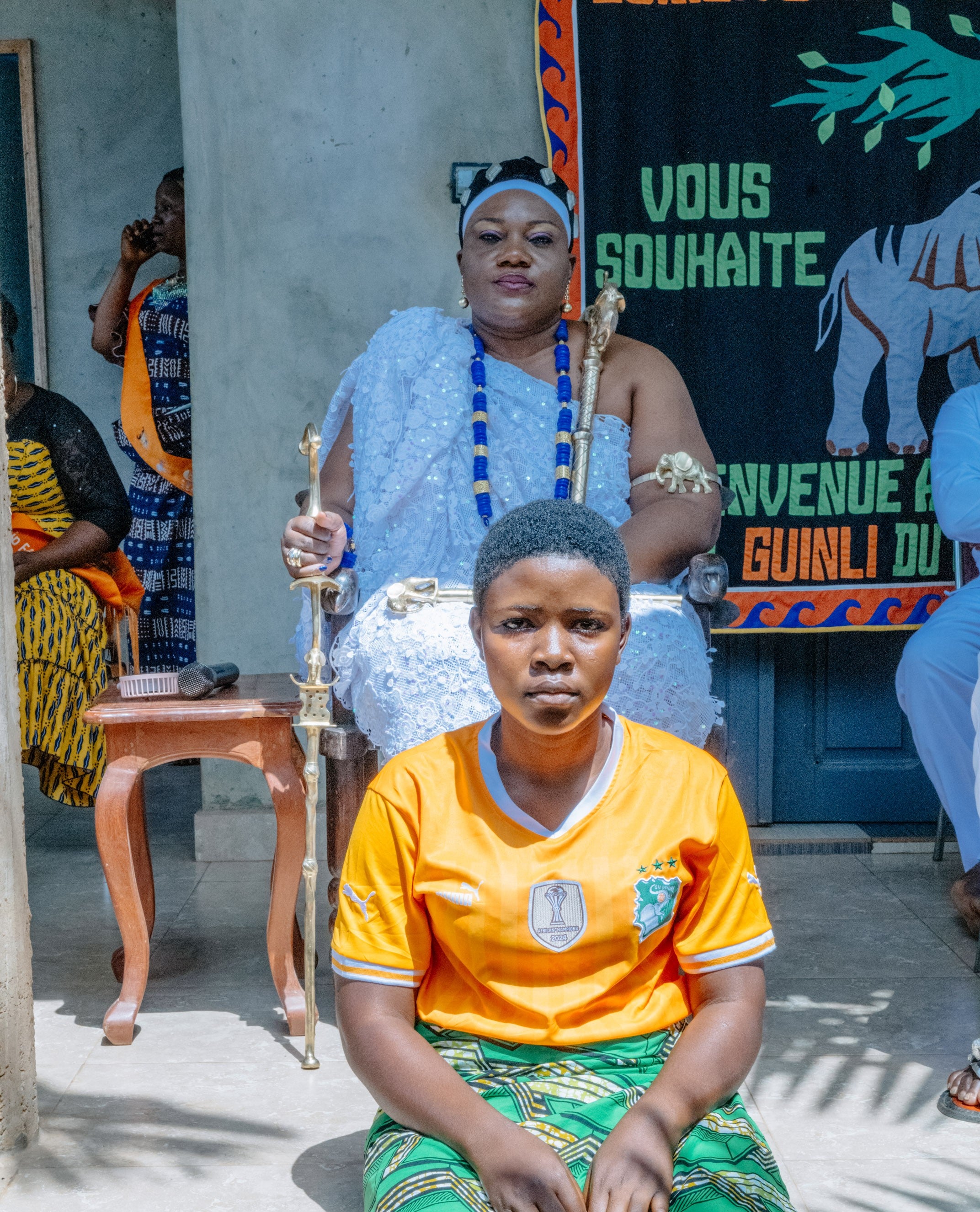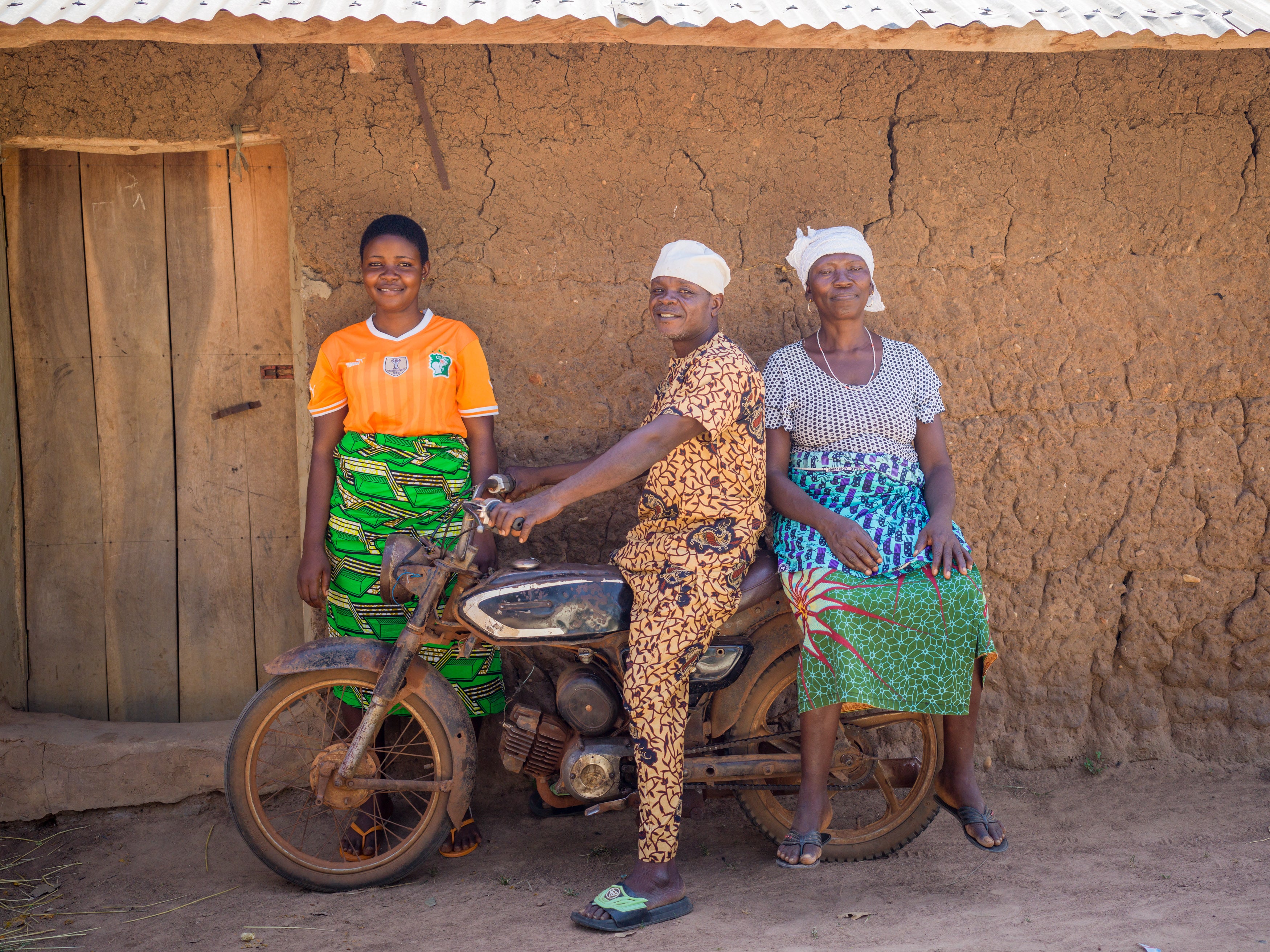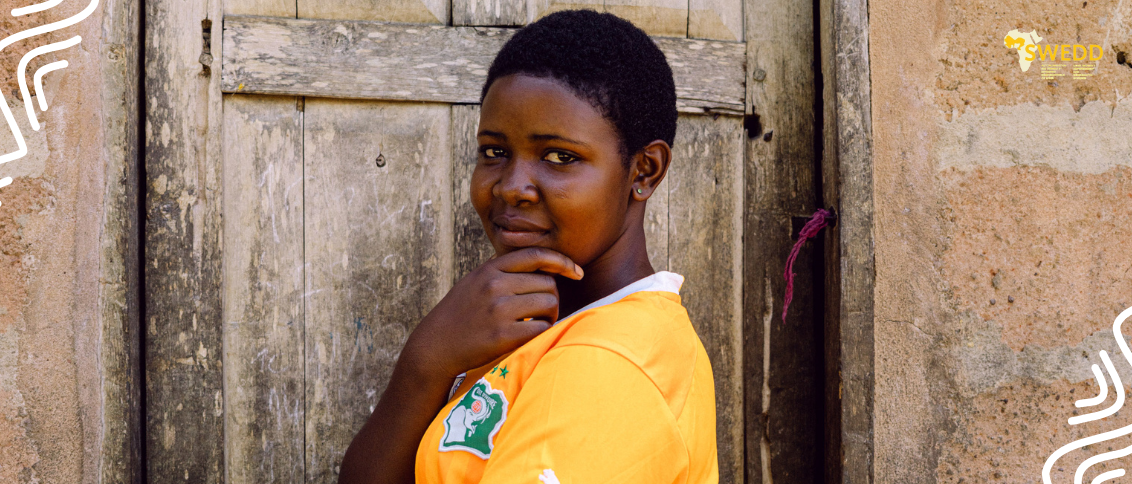

NEWS
‘I just wanted to study’: How the SWEDD project helped Diane escape child marriage
20 February 2025

In Benin, efforts to end child marriage have gained momentum with support from UNFPA under the SWEDD project, financed by the World Bank. By working alongside community and religious leaders, programmes have fostered open dialogue to address harmful practices and promote the value of girls’ education. These collaborations are creating lasting shifts in social norms and empowering communities to safeguard the rights of young women.
Toviklin, Benin - “I never wanted to get married, but I was trapped in a situation that was leading to that,” says Diane, now 17 years old, from Benin. At just 14, a young man began showing interest in her, distracting her from her studies and eventually sending her food. “We grew closer,” she recalls. But the relationship quickly escalated, and his family increasingly pressured her to stop school and marry him. Diane’s family believes the former suitor’s family put a spell on her – not an uncommon belief in a country where voodoo is adhered to.
Facing limited options, Diane and her parents sought help from their community leader, the Queen of the Adjas, who intervened to prevent the marriage.
Still dreaming of a better future
Diane, with her short, cropped hair, bright orange football jersey and colourful skirt, now spends the days alongside her parents however due to financial challenges. “My parents can’t send me to school anymore because they don’t have enough money,” she says. “So I work at home, helping with housework and assisting my dad in the fields.” Yet, her aspirations remain intact and she dreams of becoming a nurse. Something that could still be possible in her future.
Across the country’s 12 departments, 270 women leaders—Christian, Muslim, and traditional—have received specialized training to better advocate for the rights of women and girls. From navigating new legal frameworks to mastering communication, social services and strategic planning, these leaders are stepping up, equipped with the knowledge and tools to challenge deeply rooted gender inequalities.
The initiative, made possible through the United Nations Population Fund (UNFPA), is part of a broader effort to end gender-based violence and harmful practices. With UNFPA’s technical support, these women have gained expertise in advocacy, leadership, and institutional management, allowing them to strengthen their influence at both local and national levels.
In 2023, the more than 60 members of the Network of Women Religious and Traditional Leaders (NWRTLB) also participated in capacity-building workshops focused on understanding social services, strategic planning, and effective communication. The momentum continued into 2024, when regional coordination teams were established to decentralize their efforts and expand their reach.
Child marriage rates in West Africa are among the highest globally, with nearly 4 in 10 girls married before reaching adulthood. This practice limits their opportunities and exposes them to health risks, domestic violence, and economic dependency.
Shutting down child marriage one girl at a time
In Benin’s Kefou region, Her Majesty Adjignon G. Natanou, Queen of the Adjas and President of the Network of Women Religious and Traditional Leaders is a trailblazer in Benin’s royal circles, becoming the first and youngest queen ordained after the passing of her father, the ruling king. In a realm traditionally dominated by men, she has worn her crown for over a decade with confidence and quiet resolve, viewing it not as a privilege but as a duty to uplift her community. “You cannot ignore the call of tradition,” she says. Her gold pearls and regal adornments symbolize her authority, while her bracelet—representing the hand of justice—underscores her role as both ruler and advocate for justice navigating tradition and law.

royal court.
After learning of Diane’s situation and on the queen’s order, she was hosted in a safe location for three days to regain her confidence. Meanwhile, discussions with the suitor’s parents led to the cancellation of the marriage, ensuring Diane could return home and continue her education, free from the pressure of forced marriage.
Diane’s story highlights the broader risks faced by girls in similar positions. “A girl who marries young has been badly advised because she isn’t independent yet,” she said. “She doesn’t have the financial resources to support herself.” Her parents have encouraged her to prioritize independence before marriage—a message she has taken to heart. "As a girl, you have to learn to choose your friends wisely so you’re not badly influenced,” she added.

their community leader, Queen of the Adjas, for help.
